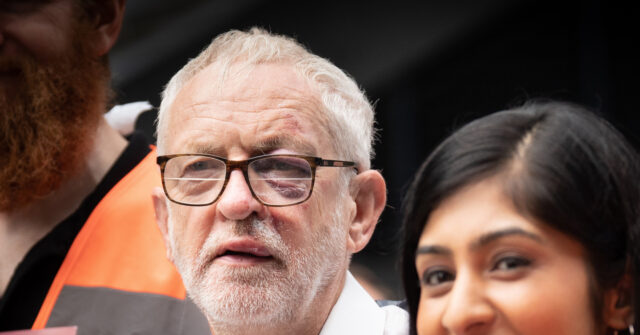Former Labour Party leader Jeremy Corbyn has confirmed rumours that he intends to establish a new party, in what may spell further trouble for embattled Prime Minister Sir Keir Starmer.
Septuagenarian Socialist Corbyn, who was ousted from Labour amid allegations of downplaying the antisemitism within the party’s ranks, looks set to split the left-wing vote in Britain with a new party alongside far-left MP Zarah Sultana, who announced her resignation from Labour this week.
Sultana claimed — apparently to the chagrin of Corbyn — that she would serve as a “co-leader” of the new leftist party alongside the former Labour boss. While Corbyn praised the Coventry South MP for her “principled decision” to leave Labour, he did not confirm that she would be given a leadership role in his new venture, which she appeared to have accidentally hard-launched early this week.
In a statement on social media on Friday, Corbyn said: “One year on from the election, this Labour government has refused to deliver the change people expected and deserved. Poverty, inequality and war are not inevitable. Our country needs to change direction, now.”
“The democratic foundations of a new kind of political party will soon take shape. Discussions are ongoing – and I am excited to work alongside all communities to fight for the future people deserve. Together, we can create something that is desperately missing from our broken political system: hope.”
However, key Corbyn allies appear hesitant to also jump ship from Labour, including former shadow home secretary Diane Abbot and former shadow chancellor John McDonnell, who, according to The Times of London, have indicated their intentions to stick with their party.
Nevertheless, a Corbyn-led party would likely have major political ramifications in Britain, particularly for the struggling Labour government of Sir Keir Starmer, which has already begun to haemorrhage support to Nigel Farage’s poll-topping populist Reform UK party.
According to pollster More in Common, a Corbynista party could instantly jump to ten per cent in the polls, siphoning off three points from Labour as well as peeling off voters from the progressive Green Party and the leftist-separatist Scottish Nationalist Party.
This would likely be driven in large part by defections from young voters, with a Corbyn-led party in position to become the most popular party among 18 to 24-year-olds.
In addition to young voters, Corbyn would also likely attempt to court Muslim voters, traditionally one of the most reliable cohorts for Labour but which have become increasingly likely to back independent candidates running on the single issue of Gaza.
Indeed, after being jettisoned from the party he once led, Corbyn was among five independents to secure seats in the House of Commons at last year’s general election. Multiple other Labour MPs in once-assumed stronghold seats narrowly escaped defeat to other pro-Gaza candidates.
Regardless, any defections from Labour are most likely to redound to the benefit of Farage’s surging Reform party.
Reform spokesman Zia Yusuf remarked: “Corbyn won more votes than Starmer did, both times that he ran. He has awful policies but is a vastly superior politician to Starmer.
“His new party will be enough to lose Labour many, many seats in 2029. Likelihood of a Reform majority thus improve nicely.”
Follow Kurt Zindulka on X: Follow @KurtZindulka or e-mail to: kzindulka@breitbart.com
Read the full article here


